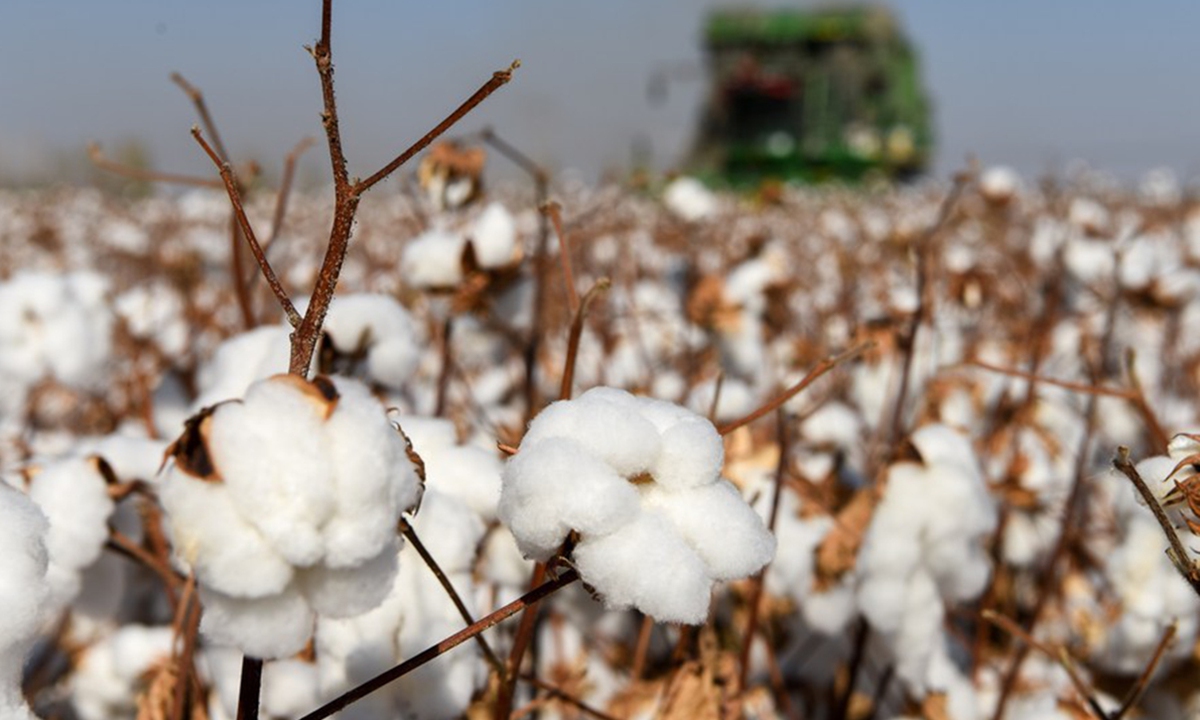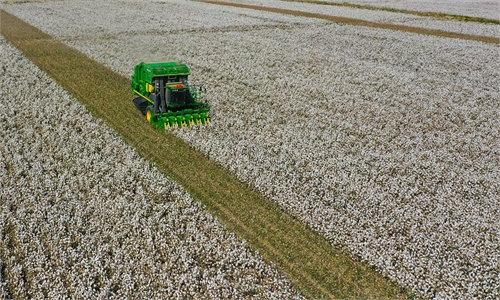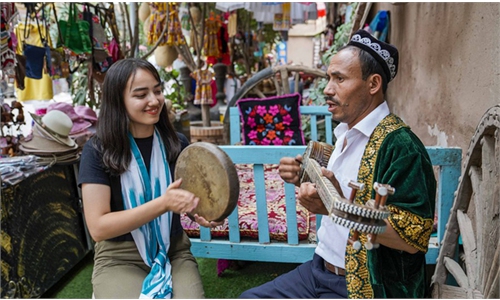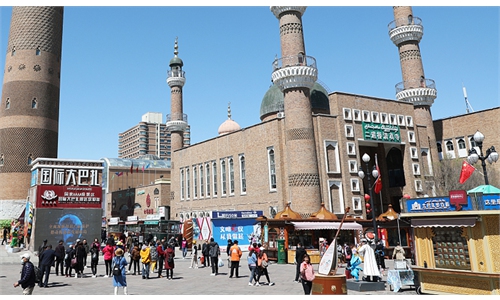
Modern agriculture gaining ground in Xinjiang's cotton fields
Despite falling exports, the textile and spinning products from Northwest China's Xinjiang Uygur Autonomous Region cotton are gaining vogue among Chinese consumers in recent months amid rising patriotism - triggered by some Western countries' relentless attacks against Xinjiang policies and boycotts by several fashion brands.
The sales jump at home market, which has boosted Xinjiang manufacturers' businesses, comes amid an across-the-board industrial effort to build the high-quality Xinjiang cotton into a global brand. While cotton farming is carrying out as usual in Xinjiang, local companies have been doubling down efforts to introduce high tech and mechanizations, aiming to snap up more shares in high-end cotton market.
"Some international brands' boycott against Xinjiang cotton in April has generated a tsunami of anger among Chinese public. The attempt is malicious, but its effect unexpectedly could be compared to an advertisement: everyone gets to know Xinjiang cotton and learn about its high quality and softness," a manager of a local textile manufacturer in Xinjiang surnamed Zhang told the Global Times on Friday.
Zhang said that although the company's exports - which accounted for only a small portion of his business - have almost grounded to a halt, domestic consumers have been embarking on a shopping spree when it comes to Xinjiang cotton in the past months, from T-shirt, pajamas, bags to tissues, which largely boosts his business.
"This is more than a patriotic move. It is a vote of confidence on the quality of Xinjiang cotton," Zhang said, noting that sales of certain Xinjiang textile products have recorded a double-digit growth.
Also, the sales of some Xinjiang firms' middle products such as spinning products have also been skyrocketing in recent months, according to Zhang.
Li Dehua, general manager of Xinjiang Lihua Group Co, a large-scale Xinjiang cotton producer, told the Global Times on Friday that the revenue of many Xinjiang textile manufacturers are "at a record high," fueled partly by surging demands at home as well as reviving global orders.
"We did not see a drastic decline in short-term overseas orders, although there are uncertainties hanging over long-term orders from abroad," Li added.
He made the comment on the sidelines of 2021 China International Cotton Conference, which was held from Thursday to Friday in Suzhou, East China's Jiangsu Province. This year, the annual meeting is themed around boosting the sustainable development of China cotton against the backdrop of Western crackdown, with the Cotton China Sustainable Development Program - which aims to build a homegrown independent sustainable standard and certification system - officially launched on Thursday.
At the conference, industry players across the Chinese cotton supply chain all voiced confidence and support for building Xinjiang cotton into the "name card" of Chinese cotton. Last year, Xinjiang produced 5.161 million tons of cotton, or 87 percent of the country's total cotton output.
"As Washington continues badmouthing Xinjiang cotton, we have the responsibility and the sense of urgency to build up the reputation not only in China but also in global market. All players should join together, taking pride of using Xinjiang cotton," Li said.
A sales representative at the exhibition booth of Shenzhen-based brand Purcotton told the Global Times at the conference that the firm has been pushing forward "de-Americanize" since last year over geopolitical risk concerns and replaced such imports with Xinjiang cotton.
In addition to Purcotton, a laundry list of domestic clothing brands such as Lining, Anta and Heilan Home have all issued statements supporting Xinjiang cotton in April. According to sales figure sent to the Global Times, sales of Lining and Anta on e-commerce platform Suning have gained by 29 percent and 25 percent on June 18 shopping festival, respectively.
Faced with Western attacks, local governments in Xinjiang have been organizing meetings with leading textile companies on measures involving how to elevate sales in domestic channels and improve product competitiveness, several Xinjiang industry insiders told the Global Times.
"We're prepared to defend ourselves against US slandering and tackle with new challenges," Wu Dongzhen, chairman of Xinjiang Shuifa Agriculture Co, told the Global Times on Thursday on the sideline of the conference. The company operates over 3,000,000 mu of cotton farms in Xinjiang.
Wu said that in the next step, the company will set up a big data platform to manage the farming, purchase, processing, sales and subsidies, allowing a quality control on the whole process of cotton production.
Industry insiders also suggest more technological measures should be applied in cotton field management, so as to improve the quality of cotton seeds and upgrade Xinjiang's cotton production to target more high-end market.
Currently, in northern Xinjiang, the proportion of mechanized cotton planting and harvesting reached 95 percent in 2020, and the index stood at 80 percent in southern Xinjiang.




